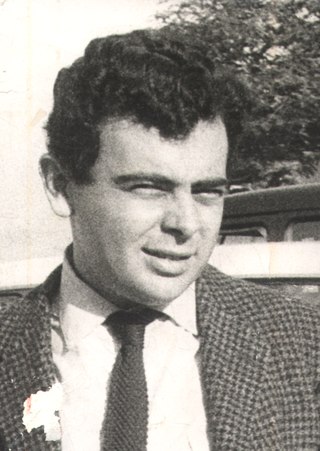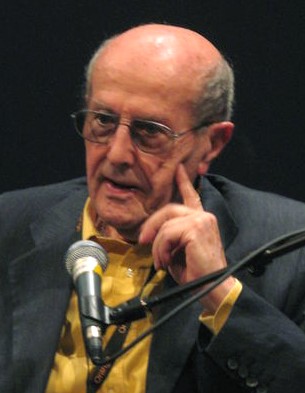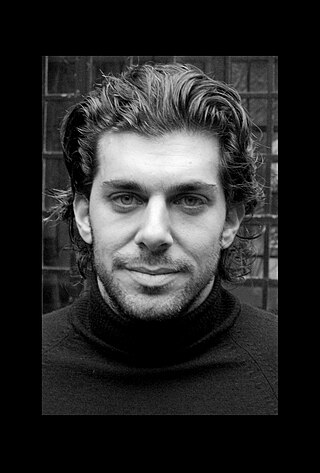
Fernando Ferreira Meirelles is a Brazilian film director, producer and screenwriter. He is best known for co-directing the film City of God, released in 2002 in Brazil and in 2003 in the U.S. by Miramax Films, which received international critical acclaim. For his work in the film, he was nominated for an Academy Award for Best Director. He was also nominated for a Golden Globe Award for Best Director in 2005 for The Constant Gardener, which garnered the Academy Award for Best Supporting Actress for Rachel Weisz. He also directed the 2008 adaptation of José Saramago's novel Blindness, and the 2011 film 360. In 2019 Meirelles directed and produced in Brazil the HBO original series Joint Venture and also directed The Two Popes for Netflix.

Glauber de Andrade Rocha was a Brazilian film director, actor and screenwriter. He was one of the most influential moviemakers of Brazilian cinema and a key figure of Cinema Novo. His films Black God, White Devil and Entranced Earth are often considered to be two of the greatest achievements in Brazilian cinematic history, being selected by Abraccine as, respectively, the second and fifth best Brazilian films of all-time. Rocha also the distinction of having the most films on Abraccine's list: 5 films.

Despite having a flourishing Chinese and Malay film industry in the 1950s and 1960s, Singapore's film industry declined after independence in 1965. Film production increased in the 1990s, which saw the first locally-produced feature-length films. There were a few films that featured Singaporean actors and were set in Singapore, including Saint Jack, They Call Her Cleopatra Wong and Crazy Rich Asians.

Manoel Cândido Pinto de Oliveira was a Portuguese film director and screenwriter born in Cedofeita, Porto. He first began making films in 1927, when he and some friends attempted to make a film about World War I. In 1931, he completed his first film Douro, Faina Fluvial, a documentary about his home city Porto made in the city-symphony genre. He made his feature film debut in 1942 with Aniki-Bóbó and continued to make shorts and documentaries for the next 30 years, gaining a minimal amount of recognition without being considered a major world film director.
Hugh Hudson was an English film director. He was among a generation of British directors who would begin their career making documentaries and television commercials before going on to have success in films.

João Manuel Relvas Leopoldo Botelho is a Portuguese film director.

The Cinema of Portugal started with the birth of the medium in the late 19th century. Cinema was introduced in Portugal in 1896 with the screening of foreign films and the first Portuguese film was Saída do Pessoal Operário da Fábrica Confiança, made in the same year. The first movie theater opened in 1904 and the first scripted Portuguese film was O Rapto de Uma Actriz (1907). The first all-talking sound film, A Severa, was made in 1931. Starting in 1933, with A Canção de Lisboa, the Golden Age would last the next two decades, with films such as O Pátio das Cantigas (1942) and A Menina da Rádio (1944). Aniki-Bóbó (1942), Manoel de Oliveira's first feature film, marked a milestone, with a realist style predating Italian neorealism by a few years. In the 1950s the industry stagnated. The early 1960s saw the birth of the Cinema Novo movement, showing realism in film, in the vein of Italian neorealism and the French New Wave, with films like Dom Roberto (1962) and Os Verdes Anos (1963). The movement became particularly relevant after the Carnation Revolution of 1974. In 1989, João César Monteiro's Recordações da Casa Amarela won the Silver Lion at the Venice Film Festival and in 2009, João Salaviza's Arena won the Short Film Palme d'Or at the Cannes Film Festival. Several other Portuguese films have been in competition for major film awards like the Palme d'Or and the Golden Bear. João Sete Sete (2006) was the first Portuguese animated feature film. Portuguese cinema is significantly supported by the State, with the government's Instituto do Cinema e do Audiovisual giving films financial support.

The cinema of Russia began in the Russian Empire, widely developed in the Soviet Union and in the years following its dissolution. The Russian film industry would remain internationally recognized. In the 21st century, Russian cinema has become known internationally with films such as Hardcore Henry (2015), Leviathan (2014), Night Watch (2004) and Brother (1997). The Moscow International Film Festival began in Moscow in 1935. The Nika Award is the main annual national film award in Russia.
Women's cinema primarily describes cinematic works directed by women filmmakers. The works themselves do not have to be stories specifically about women and the target audience can be varied.

Eric Khoo Kim Hai is a Singaporean film director and producer who is often credited for the revival of the Singapore modern film industry.
The Irish film industry has grown somewhat in recent years thanks partly to the promotion of the sector by Fís Éireann/Screen Ireland and the introduction of heavy tax breaks. According to the Irish Audiovisual Content Production Sector Review carried out by the Irish Film Board and PricewaterhouseCoopers in 2008 this sector, has gone from 1,000 people employed six or seven years ago, to well over 6,000 people in that sector now and is valued at over €557.3 million and represents 0.3% of GDP. Most films are produced in English as Ireland is largely Anglophone, though some productions are made in Irish either wholly or partially.

Paulo Branco is a Portuguese film producer.

The cinema of Lebanon, according to film critic and historian Roy Armes, is the only other cinema in the Arabic-speaking region, beside Egypt's, that could amount to a national cinema. Cinema in Lebanon has been in existence since the 1920s, and the country has produced more than 500 films.

The Marché du Film is one of the largest and most important film markets in the world. Established in 1959, it is held annually in conjunction with the Cannes Film Festival.

Amat Escalante is a Mexican film director, producer and screenwriter. He is most well known for directing the controversial Mexican crime thriller Heli for which he was awarded the best director prize award at the 2013 Cannes Film Festival, and for directing the 2016 Mexican drama The Untamed for which he received the Silver Lion for best director at the 2016 Venice Film Festival.

Marcelo Mosenson is the founder and executive director of the film production company Nomade Films.

Simón Bross is a Mexican director and producer.
Woo Ming Jin is a Malaysian film director, writer and producer. His films have screened in film festivals such as Cannes, Berlin and Venice. He is also the co-founder of Greenlight Pictures, a film and television production house based in Kuala Lumpur.

Roberto Sneider is a Mexican writer, director and producer best known for his films Dos Crímenes and Tear This Heart Out.
Izaías Almada is a Brazilian novelist, playwright, and screenwriter. In 1963 he moved to the city of São Paulo where he worked in theater, journalism, TV advertising, and script writing. Between the years of 1969 and 1971, he was a political prisoner of the military coup in Brazil that took place in 1964.















